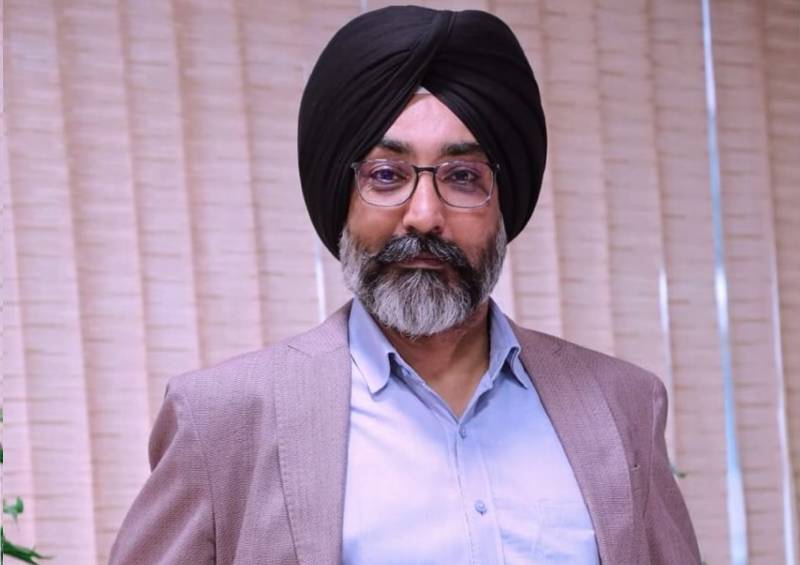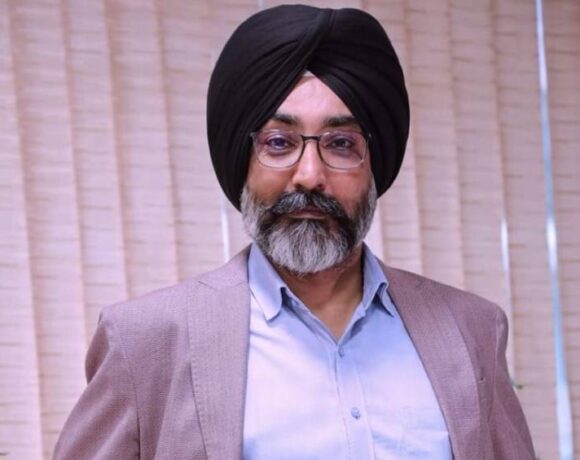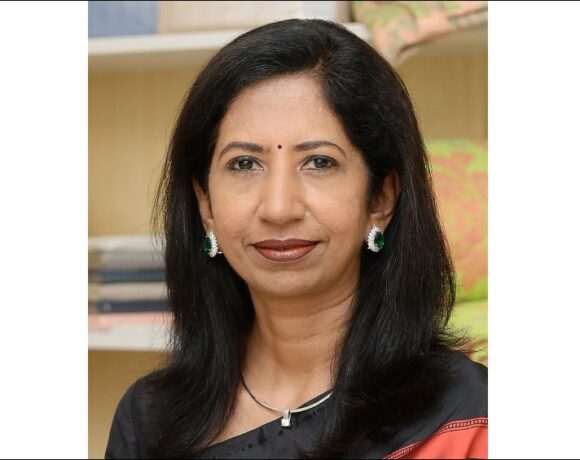‘Grasim Is The Leader In Driving Circularity In Viscose Industry’

Birla Cellulose non-woven is free of any contamination and suitable for non-woven hygiene applications. We have been working with all key value chain partners and brands to promote viscose as the most sustainable alternative, says Manmohan Singh
India’s per capita consumption of nonwoven materials is among the lowest globally. What strategies can India implement to boost this sector’s growth in India? How do you foresee this market developing over the next decade?
India market is at a very nascent stage for single use products and largely remains underpenetrated for single use non-woven products. The Covid pandemic helped to increase the adoption rate of single use material and it has been increasing at a higher growth rate. In the next decade, the key broad strategies that will enable India market to make visible shift to single use non-woven material are:
Product Innovation: Indian non-woven material players have to adopt smart product development strategy that’s beneficial to user and at the same time gives economic benefit against multi-use products. This will enable shift from multi-use products to single use non-woven products.
Focused Marketing Initiative: To get larger adoption of single use product in India it is very important for brands to understand the Indian consumer behaviour and create focused marketing initiative similar to many FMCG marketing initiatives done by big brands. The low hanging opportunity is the hygiene product segment, which has great potential for growth in India due to faster urbanization and has potential growth of 10-12% CAGR.
Government Support: Government initiative to educate consumers on the advantages of single use absorbent hygiene products and emphasize that these products are a necessity more than their comfort and convenience.
With the rise of plastic-free regulations, how important is viscose as a sustainable alternative for the nonwoven industry? How does Grasim plan to promote viscose as the fibre of choice in this context?
Designing optimum, sustainable and plastic-free alternative product requires careful consideration of performance, cost and scalability. It involves addressing key aspects such as:
- Comparing the essential performance criteria of the alternative product with the one currently used by consumers.
- Ensuring that claims, such as being plastic-free, can be verified and substantiated.
- Choosing materials that are cost-effective and readily available in large quantities to replace the majority of plastic-based products.
The crucial factor in this transition is the selection of appropriate raw materials that’s meeting the performance criteria and also has strong sustainable credentials. Viscose is the best choice as it is 100% bio-degradable fibre manufactured with sustainable process having lower carbon footprints.
Birla Cellulose non-woven is free of any contamination and suitable for non-woven hygiene applications. We have been working with all key value chain partners and brands to promote viscose as the most sustainable alternative and we are seeing a major shift towards plastic-free fibres in all segments.
China currently holds a dominant position in the global nonwoven and cellulosic fibre markets. How does Grasim view this competition, and what steps are being taken to enhance India’s competitiveness in this sector?
China’s domestic market penetration in single use non-woven material is highest in the world and this has helped in building skilled labour, robust supply chain, efficient manufacturing and presence of global brands enabled in developing variety of products in single use using non-woven material. There was also strong support and incentives from the Chinese government for the nonwoven industry, fostering innovation, growth and leading to significant technological advancements.
Grasim does not view the China market as competition. We take it as a market where we use the success of China to develop India. We are working very closely with value chain partners across the globe and our product meets global standards and we are competitive in the non-woven segment both in terms of quality and price. While the government’s initiatives like Make in India play a vital role in both technological advancement as well as exports, we do see a development and growth in India’s non-woven manufacturing with some new technologies and lines coming up. Altogether, there is a large opportunity, and with our consistent efforts, we can increase India’s non-woven share in India and across the globe.
Grasim has positioned itself as a global leader in sustainability with achievements like zero liquid discharge. How has this commitment to sustainability influenced your business decisions, and what further innovations can we expect in this area?
Sustainability is the most important pillar in the core operating ethics of Grasim Industries. We use four principles to ensure that all our process and products are sustainable:
- Responsible sourcing
- Responsible manufacturing
- Responsible focus on circular products
- Responsible for social development
As part of our sustainable approach to responsible sourcing our pulp source is 100% FSC certified forest. We do not source our pulp from any endangered forest.
Our manufacturing initiative has the best-in-class manufacturing standard like EU BAT, where we use least energy, water and no landfill ensuring we strive to become carbon neutral by 2030.
We have set ourselves goals that support our sustainability efforts:
- Net zero by 2040 and 50% reduction in GHG emissions intensity by 2030
- Grow circular products to 100,000 tonnes per year by 2024 using pre- and post-consumer and alternate feedstock
- Implement EU BAT at all fibre manufacturing sites
- Reduce water intensity by 50% in VSF production by 2025 over the baseline of FY15
- Zero waste to landfill by 2030
- Reduce the Lost Time Injury Frequency Rate (LTIFR) below 90% over the baseline of FY15
- Assess the sustainability performance of key suppliers by year 2025
New Product Development:
Over the past five years, our R&D and application development teams have been dedicated to creating new functional fibre solutions tailored to specific applications. Our development of all new nonwoven fibres is sustainable, with minimal or no additional cost, and must deliver the desired performance in end products.
Thus far, we have successfully integrated our functional sustainable fibres into various applications, including flushable wipes, AHP (Absorbent Hygiene Product) top sheets and secondary top sheets, liquid filtration, battery separators and flame retardant mattresses.
With the increasing focus on recycling, what advancements is Grasim pursuing in textile-to textile recycling using cellulosic fibres? How significant is this shift for the future of sustainable textiles?
Grasim is the leader in driving circularity in viscose industry. We have our circular brand Liva Reviva which has fibre made from textile waste in chemical recycle and mechanical recycle process. We have been working very closely with leading recycle pulp innovators e.g Circulose, Evrnu, SaxCell, and Circ, thus emphasizing reusage of raw materials and resources in our products and processes.
With EcoSodium ensuring full traceability of raw materials and compliance with REACH and ZDHC MRSL standards, how is Grasim setting new benchmarks for responsible sourcing and manufacturing in the industry? Also, given the extensive applications of sodium sulphate in industries such as textiles, detergents and pulp and paper, how does Grasim plan to scale up EcoSodium’s production and promote its use as a sustainable alternative?
Birla EcoSodium revolutionizes sodium sulphate production with eco-friendly precision. A product of Grasim, a leader in sustainable solutions, this ground-breaking product integrates advanced technologies to deliver superior performance while prioritizing environmental responsibility assessed and proved by BluWin Ltd. (United Kingdom). Birla EcoSodium helps embrace a greener future, where innovation meets sustainability for a brighter tomorrow.
EcoSodium from Grasim Industries Ltd has full traceability of raw materials and compliant with the latest SVHC and ZDHC MRSL ver 3.1 chemical substances on the manufacturing front. EcoSodium recovered from VSF manufacturing process ensures a reduction in TDS and salinity of treated wastewater. Grasim Industries Ltd. has forged valuable partnerships with global customers like Unilever, P&G, Vedanta, Saint Gobain, Asahi Glass, and organizations like ZDHC and REACH to promote sustainability.














